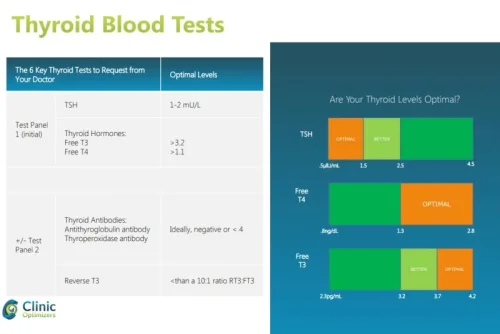Only reverse T3 was associated with mortality.
J Clin Endocrinol Metab. 2016 Nov;101(11):4385-4394. Epub 2016 Aug 23
Serum Thyroid Function, Mortality and Disability in Advanced Old Age: The Newcastle 85+ Study.
Pearce SH1, Razvi S1, Yadegarfar ME1, Martin-Ruiz C1, Kingston A1, Collerton J1, Visser TJ1, Kirkwood TB1, Jagger C1.
Abstract
CONTEXT:
Perturbations in thyroid function are common in older individuals but their significance in the very old is not fully understood.
OBJECTIVE:
This study sought to determine whether thyroid hormone status and variation of thyroid hormones within the reference range correlated with mortality and disability in a cohort of 85-year-olds.
DESIGN:
A cohort of 85-year-old individuals were assessed in their own homes (community or institutional care) for health status and thyroid function, and followed for mortality and disability for up to 9 years.
SETTING AND PARTICIPANTS:
Six hundred and forty-three 85-year-olds registered with participating general practices in Newcastle and North Tyneside, United Kingdom.
MAIN OUTCOMES:
All-cause mortality, cardiovascular mortality, and disability according to thyroid disease status and baseline thyroid hormone parameters (serum TSH, FT4, FT3, and rT3). Models were adjusted for age, sex, education, body mass index, smoking, and disease count.
RESULTS:
After adjustment for age and sex, all-cause mortality was associated with baseline serum rT3 and FT3 (both P < .001), but not FT4 or TSH. After additional adjustment for potential confounders, only rT3 remained significantly associated with mortality (P = .001). Baseline serum TSH and rT3 predicted future disability trajectories in men and women, respectively.
CONCLUSIONS:
Our study is reassuring that individuals age 85 y with both subclinical hypothyroidism and subclinical hyperthyroidism do not have a significantly worse survival over 9 years than their euthyroid peers. However, thyroid function tests did predict disability, with higher serum TSH levels predicting better outcomes. These data strengthen the argument for routine use of age-specific thyroid function reference ranges.













